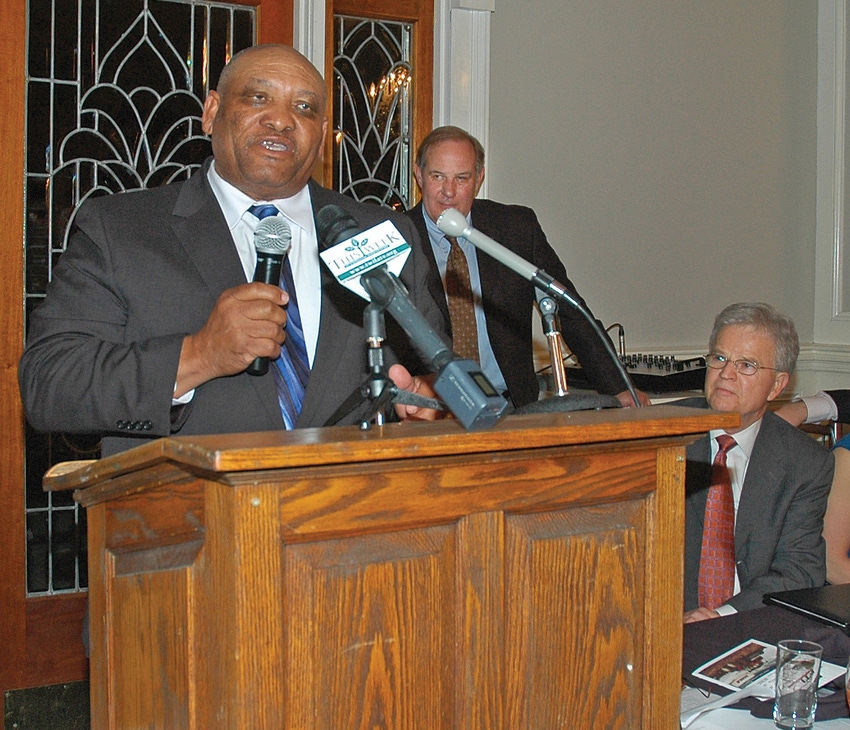March 1, 2013

Harper Armstrong of Bastrop, La., a farmer for the past 47 years in Morehouse Parish, has been selected as the 2013 Louisiana Farmer of the Year.
He was among three finalists in a competition sponsored by the Louisiana Agri-News Network, the Louisiana Farm Bureau Federation, the LSU AgCenter and the Louisiana Department of Agriculture and Forestry. The others were Donald Berken, of Welsh, in Jefferson Davis Parish, and Gerald Wood, of St. James, in St. James Parish.
Armstrong farms about 2,500 acres and has grown corn, cotton, soybeans and wheat, but market prices often dictate the crops he chooses.
“Last year was the first year I didn’t grow any cotton. It was primarily a cotton operation, but we have switched to a corn, soybeans and wheat operation now,” Armstrong said.
Throughout his career, Armstrong has seen technology change the farming landscape. Equipment has gotten bigger, and yields are much better.
“Back in the day, if you made 100-bushel corn, you were raising all kind of sand. Now everyone is striving for 200, and the top yield is pushing 300 bushels. With this new technology and being able to invest in pest control, it has made a big difference,” he said.
Armstrong and his wife, Lois, have one daughter, Ashley. All are involved in the farming operation.
While the successes have outnumbered the failures for Armstrong, it only takes one bad year to put a farmer in a difficult situation. Armstrong vividly remembers one such year when drought struck.
“Farming during 1998 was one of the worst years. You plant 800 acres of corn, and you leave 600 or so acres in the field. You got all those bills to pay because you spent the money to fertilize the corn. You’re paying your labor, and you can’t sell a crop. That hurts, and that will put you out of business.”
Armstrong is the assistant chairman of the National Black Growers Council, president of the Morehouse Black Farmers and Landowners Association, and a board member of the Ag Advisory Board and the Morehouse Activity Center.
Berken farms nearly 1,000 acres and grows primarily rice and soybeans. He always saw himself as a farmer, although his father encouraged him to become a doctor or a lawyer.
“I grew up on a farm. Love working outside, love working on equipment, repairing things, driving tractors. There never was anything else,” Berken said.
While he must take risks every year, Berken seeks to minimize this risk by buying used equipment and by broadcast seeding his soybeans as opposed to conventional drill seeding.
“I try to shop for equipment that is used but still has a lot of value in it. I can use that money to put a crop in and not make as much a crop loan. You can plant soybeans today and get a 3-inch rain tomorrow. You’re going to lose that stand. But if you broadcast and increase your seeding rates 10-15 percent, you ensure yourself a stand, and it’s a little less risky,” Berken said.
Wood farms more than 6,000 acres of sugarcane in St. James and Pointe Coupee parishes. He grew up on a farm, but it was mainly a cattle operation. He knew he would be a farmer early in life, but his father insisted that Wood go to college.
“When I got out of high school, I was ready to farm. My father said, ‘You got to go to college or you can’t work on the farm.’ So I went to LSU in animal science, and the rest is history.”
For Wood, the most stressful times are the planting season in summer followed by cultivation and fertilization in spring. But all of the hard work and stress are justified come harvest time.
“The most rewarding time is harvest. And it’s the least stressful time for me because in the morning, I don’t care whether it rains or snows, I don’t care if the mail passes or not. I have to get that crop of sugarcane every day to the mill until we are finished.”
For being selected Farmer of the Year, Armstrong received $1,000 and 100 hours’ use of a Case IH Magnum tractor. For being named finalists, Berken and Wood each received $500.
You May Also Like




